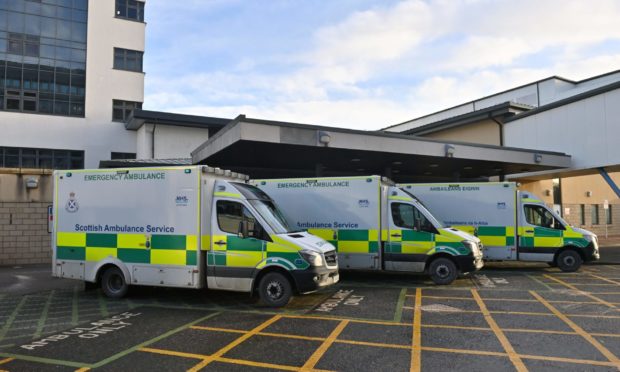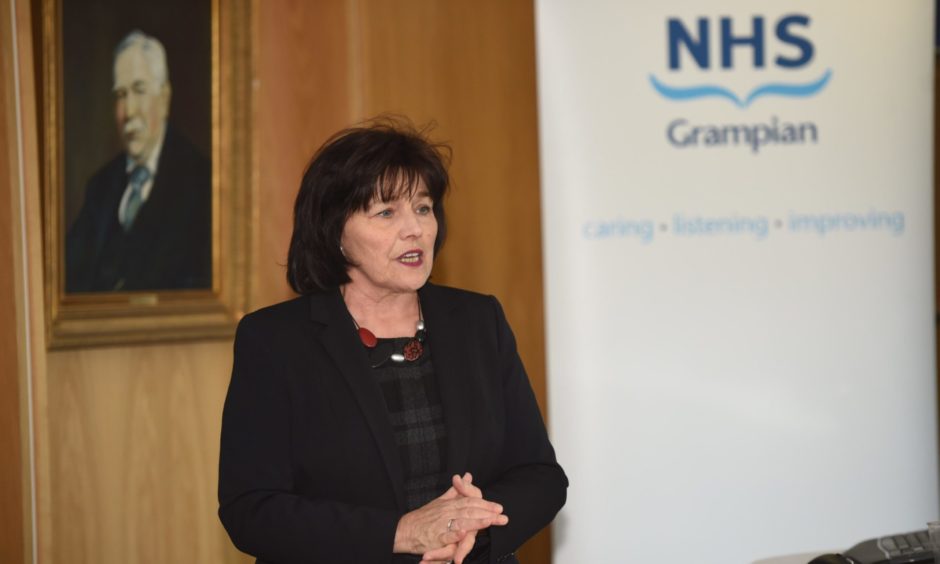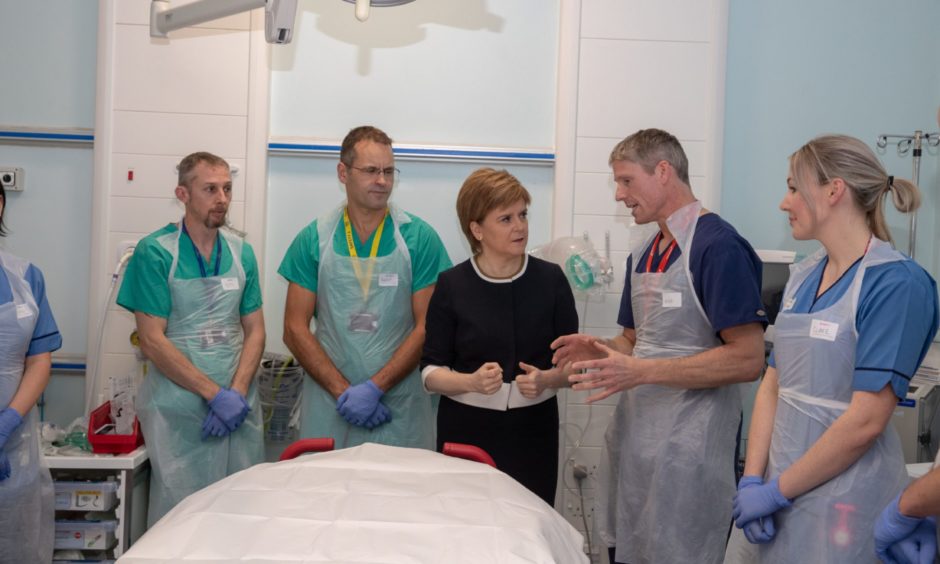The lead clinician for the north of Scotland trauma network said he suspects a rise in injuries related to alcohol and self-harm is down to “the levels of distress” some people are experiencing.
MSP’s on Holyrood’s Health Committee were told the number of major trauma cases being dealt with by medics across Scotland has increased during the Covid-19 crisis.
James Anderson, the lead clinician for the North of Scotland Trauma Network, said in the north the “numbers have continued in absolute terms largely unchanged in terms of major trauma admissions”.
However, he said the Covid-19 pandemic has changed the type of trauma injuries requiring treatment, adding: “Because people are spending more time at home during the first lockdown we saw more injuries in domestic settings – that would be falls from height, falls from domestic tasks.
“Unfortunately the clinical impression is also of an increase in injuries related to alcohol and, to a degree, self-harm as well, which I suspect is an indication of the levels of distress that some people are experiencing.”
Mr Anderson said road traffic accidents are still occurring but those involving multiple people had “perhaps dropped”, as a result of restrictions around travel, including travelling individually rather than in groups.
There’s no doubt the Australasians were 20 years ahead of us in the UK at that time, in terms of major trauma management.”
Michael Donald, lead clinician of the East of Scotland Trauma Network
In terms of the impact of Covid-19, he added: “There is the ward pressures and staff pressures as we had to reorganise in the hospital.
“There’s been a degree of cross-support to ICU and HDU as needed as well as the slips, trips and falls aspects, which has added a little bit of pressure as well at the A&E side of things.”
In October 2018 a multimillion-pound facility at Aberdeen Royal Infirmary was the first of four major trauma centres to open as part of Scotland’s trauma network, with a second opening at Dundee’s Ninewells Hospital in November that year.
Dr Martin McKechnie, national clinical lead of the Scottish Trauma Network, told MSPs the number of “very major” trauma cases being dealt with by medics has increased during the Covid-19 crisis.
He said lockdown resulted in more cases linked to domestic abuse and mental health problems – including self-inflicted violence and violence against others.
There has also been an increase in trauma cases in road traffic accidents and leisure-related activities but “less severe” trauma cases have experienced a “slight reduction”.
The pandemic has “slightly scuppered plans” to open two further specialist centres in Glasgow and Edinburgh, which were originally due to open in 2019 but were delayed and then further held up by the pandemic.
Dr McKechnie said this was a result of additional pressures caused by the “difficulties and staff deployment and recruitment and demands made upon health services”.
International comparisons
Michael Donald, lead clinician of the East of Scotland Trauma Network based in Ninewells Hospital, Dundee, told MSPs he had previous experience working on a rescue helicopter in New South Wales, Australia, doing trauma work around 15 years ago.
He said: “There’s no doubt the Australasians were 20 years ahead of us in the UK at that time, in terms of major trauma management.
“I’m really pleased to say that the developments we’ve seen in Scotland, I think, now surpass those that have been available to the public in Australasia for many years in that although they have a very high-end, high-level care system, it’s very much devolved to within their region.
“Whereas in Scotland the way the network has been developed has been across all the geo-political boundaries.
“We’re at a stage now, wherever you end up experiencing major trauma in Scotland, the network will now assume that responsibility for that individual and work so hard to wrap that care around the patient.”
Dr McKechnie added that countries across the world are showing an interest in how Scotland’s major trauma network is operating, including teams from Norway, New Zealand and the US.
Mr Anderson told MSPs that feedback from teams in remote and rural hospitals in the north was that the changes to trauma care had been “revolutionary”, particularly in respect of having one main point of contact.
He told MSPs that a number of senior clinicians in the islands and Caithness had said they previously had to make “many, many phone calls” to arrange care for trauma patients but now there is a network with a central point of contact they can reach.


